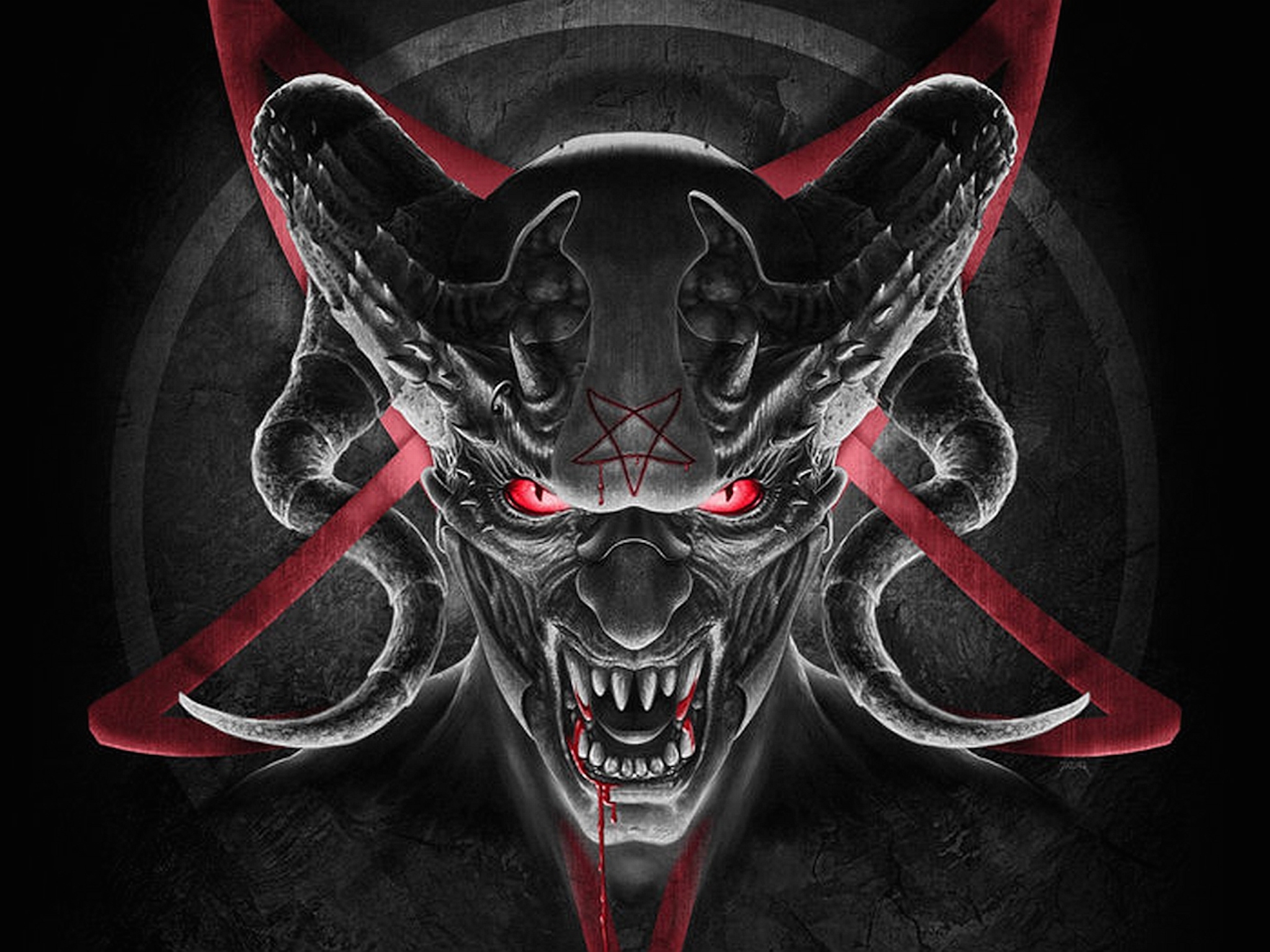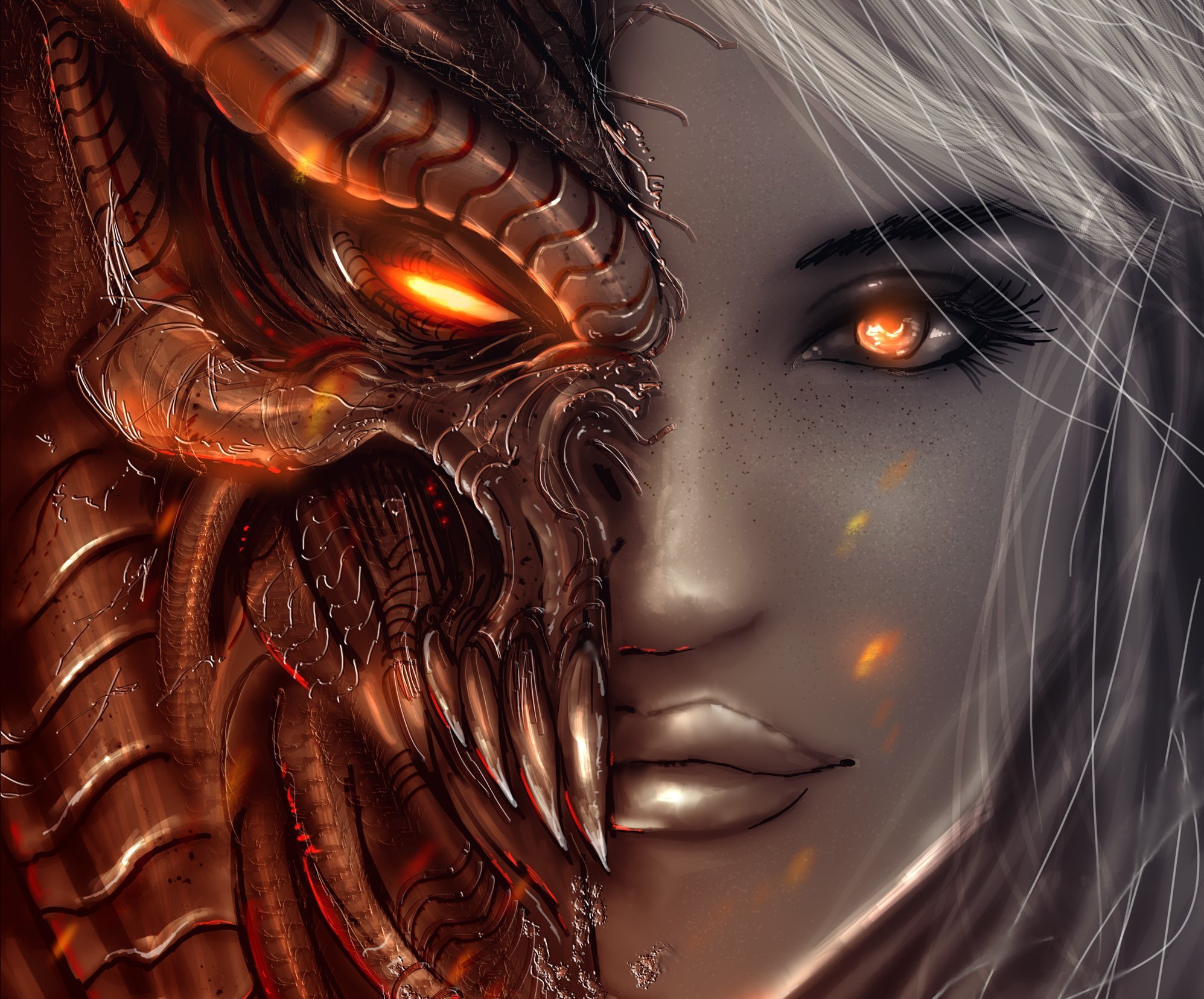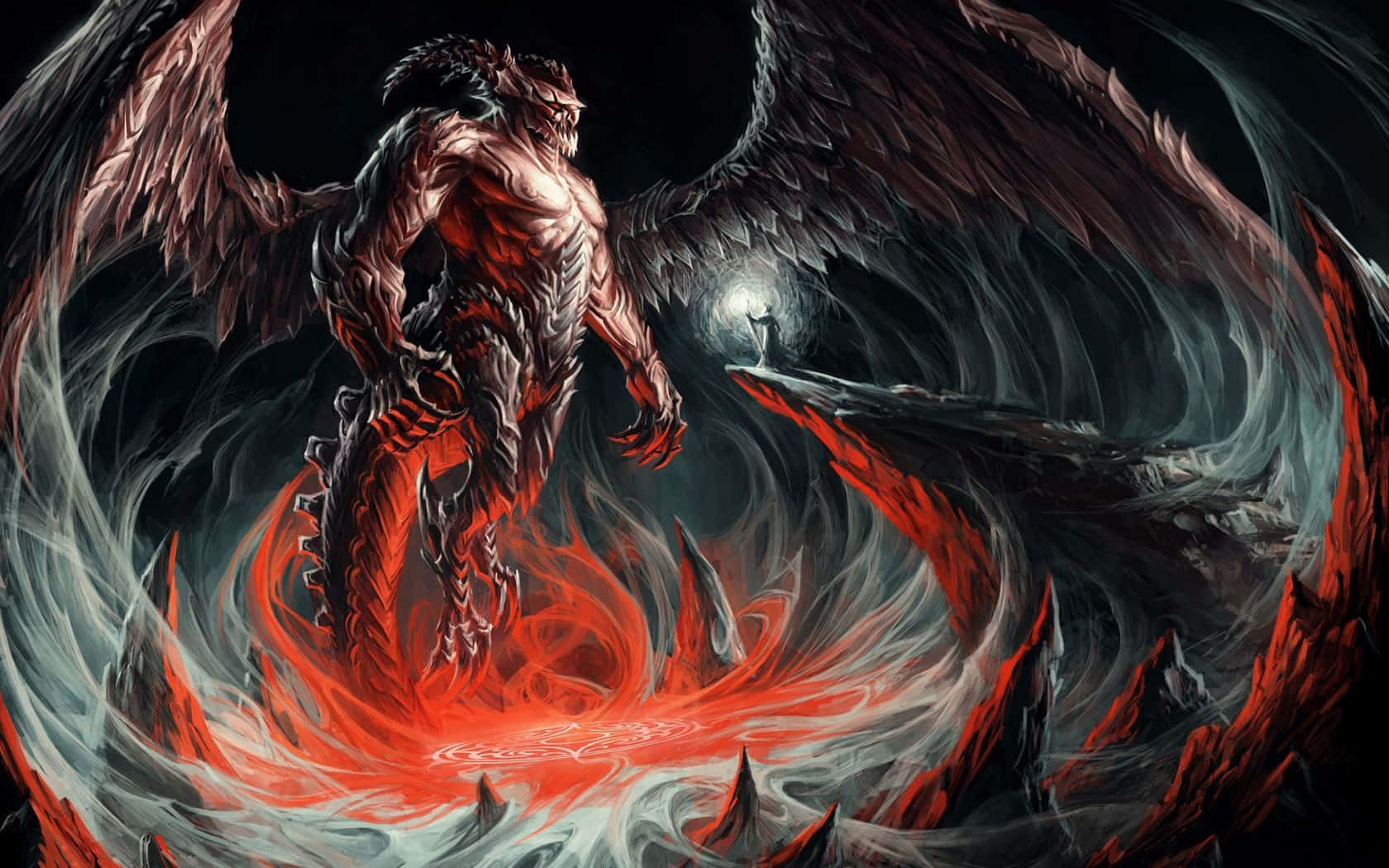Have you ever felt a bit confused when people talk about certain things, especially when the words sound a lot alike but might mean something different? It's a common thing, so, too it's almost, to hear folks use "demon" and "devil" as if they were the same word, which, as a matter of fact, can lead to some interesting conversations, or even, apparently, some teasing. This whole "demon boy saga" of word choice often pops up in discussions about ancient stories and beliefs, making us wonder if there is more to these terms than meets the eye.
Sometimes, we just pick up words from what we hear around us, not always stopping to think about their exact origins or how they might be understood by others. That, you know, can be a little tricky when we are trying to share our thoughts clearly. When it comes to things like good and bad, or spiritual beings, the words we pick can carry a lot of weight and mean different things to different people, which is why, as I was saying, it is good to get a better handle on them.
It turns out that, just a little bit, there are some pretty clear ways to tell these two words apart in many older traditions, and knowing the difference can help us avoid those awkward moments where someone might correct us. We will look at what makes each of these terms distinct, how they show up in old texts, and even how they are used in everyday chat, so, you know, we can all feel a bit more sure about what we are saying.
- Louise Vongerichten Age
- Maria Snoeys Lagler
- Drew Barrymore Fitness
- Teach Me First Honeytoons
- Ringo Starr Setlist
Table of Contents
- What's the Real Story with the Demon Boy Saga?
- How Do We Tell "Demon" From "Devil" in the Demon Boy Saga Discussion?
- What is a "Devil" in the Context of the Demon Boy Saga?
- What About "Demons" in the Demon Boy Saga Conversation?
- Are "Demon" and "Devil" Always Different in the Demon Boy Saga Discussions?
- How Does the Demon Boy Saga Connect to Everyday Talk?
- What About the Origins of Evil Spirits in the Demon Boy Saga?
- How Do These Evil Spirits Affect People in the Demon Boy Saga Narrative?
- What's the Meaning of 666 in the Demon Boy Saga Context?
- How Can Someone Find Freedom From Wrong Ideas in the Demon Boy Saga Discussions?
What's the Real Story with the Demon Boy Saga?
Many people find themselves in a bit of a pickle when these words come up, as a matter of fact. It seems pretty common for someone to just swap "demon" for "devil" without a second thought, and then, you know, someone else might point it out. This situation, where words are used interchangeably, can cause a little bit of confusion, especially for those who pay close attention to the way language is used in stories and old writings. It is almost like calling a dog a cat; they are both animals, but they are clearly not the same thing, are they? This kind of mix-up is what often sparks the "demon boy saga" of discussions.
The idea of these two terms being different is something that comes from how they are talked about in old texts and long-held beliefs. It is not just about a word, but about the role and nature of the being that the word describes. So, to really get a handle on it, we have to look at the ideas behind each word, and how they fit into a bigger picture of what people have believed for a long, long time. It is a bit like looking at a family tree, really, to see who is related to whom and what their place is.
How Do We Tell "Demon" From "Devil" in the Demon Boy Saga Discussion?
Based on what many people understand, the difference between "devil" and "demon" is a bit like the difference between "God" and "angels." This way of looking at it helps to put things into perspective. You see, when we think about the highest good, we often think of God, and then there are angels who carry out God's wishes or act on God's behalf. This comparison helps us to see a similar kind of structure on the other side of things, if you will, which is quite interesting.
So, basically, if you think of it that way, there is a kind of top-down structure, even for things that are thought of as bad. It is not just a free-for-all where every bad spirit is the same. There is a hierarchy, a way that these beings are organized, and understanding that organization is key to telling them apart. It is a bit like knowing the difference between a king and a knight; both are important in their own way, but one has a far greater position and sway, naturally.
What is a "Devil" in the Context of the Demon Boy Saga?
When people talk about the "devil," they are usually referring to the very worst being, or you could say, the "god" of the bad side. This being is often seen as the source of all that is truly awful, the ultimate bad guy in many stories and belief systems. It is the one at the top, the one who sets the tone for all the bad things that happen. This is a pretty big idea, you know, thinking about something that is the absolute opposite of good, the very heart of all that is wrong.
This "devil" figure is often seen as having immense sway, a kind of head honcho of all that is dark. It is not just a little bit bad; it is the source of all badness, the one who leads the charge. So, when we hear about the "devil," we are talking about a being that is on a whole different level from other bad spirits, the one who is the master of all things that are considered to be truly evil. It is a concept that has been around for a very long time, shaping how many people think about the forces of darkness, as a matter of fact.
What About "Demons" in the Demon Boy Saga Conversation?
On the other hand, demons are often seen as beings that work for the devil. They are like the helpers, the ones who carry out the devil's plans or do the devil's bidding. They are still considered bad, of course, but they are not the top dog. They are more like agents or messengers, doing the dirty work for the main bad one. So, you know, they have a specific role, a job to do in the bigger scheme of things, if you will.
These demons are often described as being many in number, and they can take on different forms or have different jobs. They are not the origin of badness themselves, but rather they spread it or act as tools for it. It is a bit like thinking about an army; there is a general, and then there are the soldiers who follow orders. The soldiers are important, but the general is the one giving the commands, which is, in some respects, a pretty good way to think about it.
Are "Demon" and "Devil" Always Different in the Demon Boy Saga Discussions?
It is worth noting that, sometimes, these two terms can be used in ways that seem a bit similar, or even swapped around, as you know. While there is a clear difference in their traditional meanings, especially in religious texts, people in everyday conversation might not always stick to those strict definitions. This is where the confusion often comes from, where someone might use "demon" when they really mean "devil," or vice versa. It is just how language works sometimes, a little bit fluid.
So, you might hear someone say, "That was a devil of a problem," when they mean it was a very hard problem, not that it was caused by the actual Devil. Or they might say, "He fought like a demon," meaning he fought very hard, not that he was literally a demon. These common ways of speaking can blur the lines, making it seem like the words are interchangeable, even though their core meanings are quite distinct. It is pretty interesting how words can take on different shades of meaning depending on how they are used, isn't it?
How Does the Demon Boy Saga Connect to Everyday Talk?
Interestingly, the word "demon" can sometimes describe how much someone puts into something. For example, you might hear someone say, "He studied English every day for 10 hours like a demon." This does not mean the person is literally a demon; it just means they were incredibly focused and worked with a lot of energy and drive. It is a way of saying someone is really, really dedicated to what they are doing, pushing themselves hard. This usage is quite common, actually, and shows how words can stretch beyond their original meanings.
On the other hand, the word "devil" can sometimes be used to describe someone who is overly picky or critical about something. You might hear, "That pretty little thing is a devil for details," meaning they are very, very particular about every small part. Again, this does not mean the person is literally the Devil. It is just a way of describing someone who has a very sharp eye for mistakes or who is very hard to please. So, you see, these words have a life of their own outside of their traditional, more serious meanings, which is kind of neat.
What About the Origins of Evil Spirits in the Demon Boy Saga?
Old writings, like the Bible, talk about how the very first angel turned into a demon. This is a pretty significant idea, as it explains where some of these bad spirits came from. It was not always that way; this being started out as something good, but then chose a different path. This transformation is a key part of the story for many who believe in these things, showing a fall from a good state to a bad one. It is a tale of change, you know, from light to darkness.
Learning about who became the first demon, and how other angels followed that one in Noah's time, helps to fill in some of the blanks about these beings. It suggests a kind of rebellion, where certain spiritual beings decided to go against the way things were set up. This idea gives a backstory to the existence of demons, explaining them not as created evil, but as beings who chose to become evil. It is a pretty complex thought, actually, about free will and its results.
How Do These Evil Spirits Affect People in the Demon Boy Saga Narrative?
Many traditions talk about how the devil and demons can have an effect on people. This can happen in various ways, from subtle suggestions to more direct forms of influence. It is not always about big, dramatic events; sometimes, it is about thoughts or feelings that seem to come from somewhere else. People often wonder about spiritism and demon possession, which are topics that come up quite a bit when these kinds of discussions happen. It is a rather serious topic for those who believe in it.
People also want to know how to keep themselves safe from the devil's influence and how to be looked after. The Bible, for instance, says that angels help God's true worshippers. This idea gives comfort to many, suggesting that there is a way to be protected from these bad influences. It is about understanding what these influences are and then knowing how to stand firm against them. This kind of protection is something many people look for, naturally, when they think about these things.
What's the Meaning of 666 in the Demon Boy Saga Context?
The Bible says that the number, or name, of the beast — which is 666 — is "a man's number." This is found in Revelation chapter 13, verses 17 and 18. That expression tells us that the beast talked about in Revelation chapter 13 is a human entity. So, it is not some kind of spiritual being or a monster in the way some might think. It is something related to people, to human systems or governments, which is a pretty important detail for understanding it.
Other Bible verses help to make clear what 666 means and what the mark of the beast is. It is not just a random number; it has a specific meaning within the context of these old writings. This meaning often points to human imperfection or human rule that sets itself against what is considered good. So, when people talk about 666, they are often talking about a symbol that stands for something very human, but also something that is not aligned with divine purposes. It is quite a symbolic number, really.
How Can Someone Find Freedom From Wrong Ideas in the Demon Boy Saga Discussions?
Millions of people believe they are worshipping God, but they are actually serving Satan the Devil. This is a thought that comes up in many discussions about faith and belief. It suggests that it is possible to be sincere in your worship but still be misguided about who you are truly serving. This idea leads to the question of how someone can break free from what is called false religion, which is a very personal and significant concern for many. It is about finding a path that feels right and true, basically.
When Jesus was on earth, he showed honor to his Father by saying that his Father was the one who gave him the ability to do miracles. This is a point that is often brought up to show where true power and authority come from. It is about giving credit where it is due and acknowledging the source of good things. The New World Translation of the Holy Scriptures, published by Jehovah's Witnesses, is one source where these ideas are explained, providing a particular viewpoint on these very old and important topics. It is a pretty clear way of looking at things for those who follow that path.
Related Resources:



Detail Author:
- Name : Troy White PhD
- Username : braun.kevon
- Email : zwuckert@wyman.biz
- Birthdate : 1997-09-15
- Address : 942 Onie Knoll Kubmouth, AL 45229-2192
- Phone : 351.593.4078
- Company : Ritchie LLC
- Job : Electro-Mechanical Technician
- Bio : Labore pariatur neque doloribus tenetur cum ducimus velit nihil. In possimus ab ut ut. Aliquid sit provident est qui enim. Esse blanditiis et eaque a.
Socials
tiktok:
- url : https://tiktok.com/@percyemard
- username : percyemard
- bio : Ut quibusdam explicabo eligendi consequuntur voluptatem.
- followers : 2497
- following : 2563
facebook:
- url : https://facebook.com/emardp
- username : emardp
- bio : Iusto similique sunt aspernatur deserunt. Ut est dolore ut perferendis.
- followers : 234
- following : 414
twitter:
- url : https://twitter.com/percy1569
- username : percy1569
- bio : Doloribus dolorem omnis eos reiciendis ratione fuga. Accusantium enim vero id sed ullam explicabo. Consequatur adipisci aut eveniet rem quam maiores.
- followers : 1773
- following : 1720